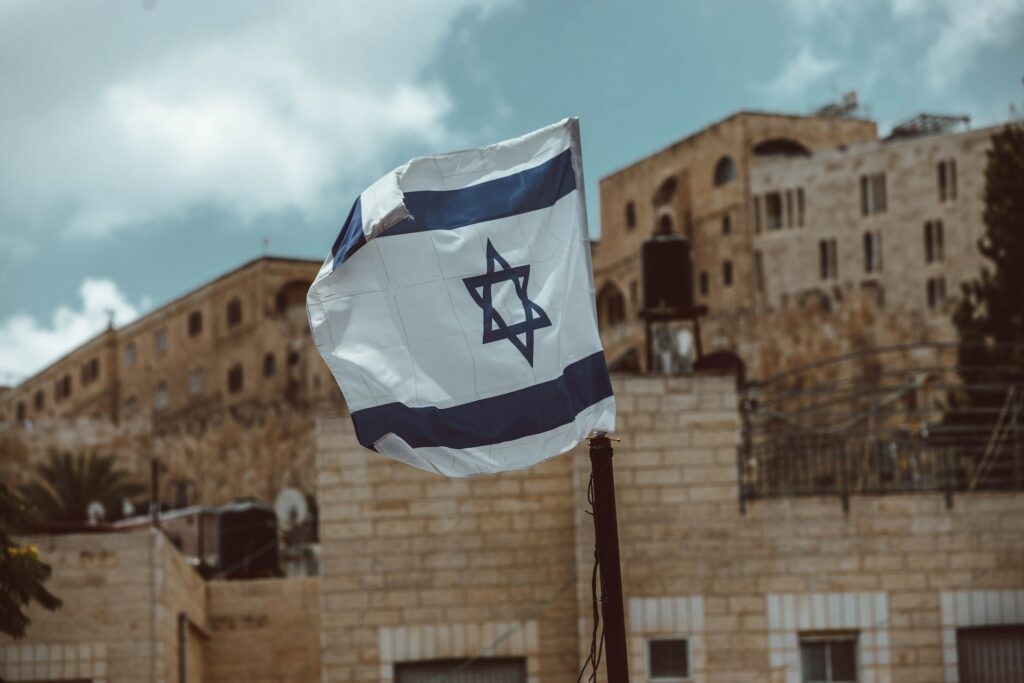
(Cupventi.com) – In a devastating airstrike by Israeli forces, a house in the central Gaza refugee camp of Nuseirat was hit, resulting in at least 27 fatalities, predominantly women and children, as reported by the local hospital, Al-Aqsa Martyrs Hospital. The Civil Defense in Gaza later indicated that the death toll might be even higher, citing the recovery of 31 bodies from the rubble.
The bombing occurred on Sunday amidst intensifying clashes across northern Gaza, where Israeli forces and Hamas militants have been engaged in relentless combat for the past eight months. The airstrike coincided with a visit by a United States envoy to the region, aiming to mediate and discuss potential post-war governance strategies for Gaza.
Jake Sullivan, the U.S. national security adviser, was scheduled to meet with Israeli leaders to deliberate on a U.S. proposal for Saudi Arabia to officially recognize Israel. This plan includes Saudi support for the Palestinian Authority in governing Gaza, ultimately paving the way for Palestinian statehood.
On Monday, Roger Carstens, the U.S. special envoy for hostage affairs, will travel to Doha, Qatar, to participate in a panel at the Global Security Forum. The panel, titled “The Impacts of Hostage-Taking by State and Non-State Actors,” will see Carstens engaging with Qatari officials and other international representatives to address issues of wrongful detention and hostage situations.
In Israel, Prime Minister Benjamin Netanyahu faces internal criticism over his handling of the war and future plans for Gaza. His main political rival, Benny Gantz, has issued an ultimatum, threatening to withdraw from the government coalition if a comprehensive plan for Gaza’s post-war administration is not formulated by June 8. Gantz advocates for an international administration to manage Gaza, a proposal Netanyahu opposes. Netanyahu insists on maintaining Israeli security control over Gaza and partnering with local Palestinians unaffiliated with Hamas or the Palestinian Authority.
Gantz’s potential departure from the coalition would not topple Netanyahu’s government but would make it more reliant on far-right factions. These factions support measures such as the “voluntary emigration” of Palestinians, full military occupation, and the reconstruction of Jewish settlements in Gaza.
Despite the ongoing discussions about Gaza’s future, the conflict shows no signs of abating. Hamas has regrouped in northern Gaza, an area heavily bombarded by Israeli forces at the war’s outset. The recent airstrike in Nuseirat reflects the continued intensity of the fighting.
The airstrike targeted a house belonging to the Hasan family, leading to significant casualties. The Palestinian Red Crescent reported a separate strike on a street in Nuseirat, resulting in five additional deaths. In Deir al-Balah, another strike killed Zahed al-Houli, a senior officer in the Hamas-run police, and another individual. Northern Gaza, largely isolated by Israeli troops, has experienced severe food shortages, with the World Food Program warning of a looming famine.
The Civil Defense reported that airstrikes near Kamal Adwan Hospital in Beit Lahiya killed at least 10 people. Rescuers released footage showing efforts to extract bodies from the rubble amid ongoing explosions. In the nearby Jabliya refugee camp, residents reported intense artillery and airstrikes.
“The situation is very difficult,” stated Abdel-Kareem Radwan, a resident of Jabaliya. “The eastern side has become a battle zone where Israeli jets strike anything that moves.”
Mahmoud Bassal, a spokesperson for the Civil Defense, indicated that at least 150 bodies had been recovered in Jabaliya since Israel launched its operation there. More than half of the deceased were women and children, and approximately 300 homes have been completely destroyed.
Israel’s offensive followed a brutal attack by Hamas on October 7, where Palestinian militants killed around 1,200 Israelis, primarily civilians, and abducted approximately 250 individuals. The ongoing conflict has resulted in over 35,000 Palestinian deaths, according to Gaza’s Health Ministry, and displaced around 80% of Gaza’s 2.3 million residents.
Israel maintains that it endeavors to avoid civilian casualties and attributes the high death toll to Hamas, which it accuses of using residential areas to position fighters and weaponry.
Netanyahu faces mounting domestic and international pressure to end the conflict. Critics accuse him of prolonging the war to avoid addressing security failures and potential legal issues related to longstanding corruption allegations. Protests have erupted across Israel, demanding a ceasefire and the release of hostages.
Despite these pressures, Netanyahu insists that the offensive must continue until Hamas is dismantled, and hostages are returned. He argues that discussing post-war arrangements is futile while Hamas remains active, as the militant group has threatened anyone who collaborates with Israel.
Internationally, the Biden administration has expressed frustration with Israel’s conduct of the war while continuing to provide military aid. Recently, the U.S. withheld a shipment of bombs intended for a full-scale invasion of Rafah, citing humanitarian concerns. However, after Israel initiated a limited operation in Rafah, the U.S. moved forward with a significant arms sale to Israel.
Sullivan’s visit follows discussions with Saudi Arabia’s Crown Prince Mohammed bin Salman, focusing on an ambitious plan for Saudi Arabia to recognize Israel and support Gaza’s reconstruction. This deal hinges on Israel agreeing to a credible path toward Palestinian statehood, a condition Netanyahu has repeatedly rejected.
Gantz supports normalizing relations with Saudi Arabia and other Arab nations but insists that no external power should impose a Palestinian state on Israel. The future of Gaza remains uncertain as the conflict continues to rage, with no clear resolution in sight.